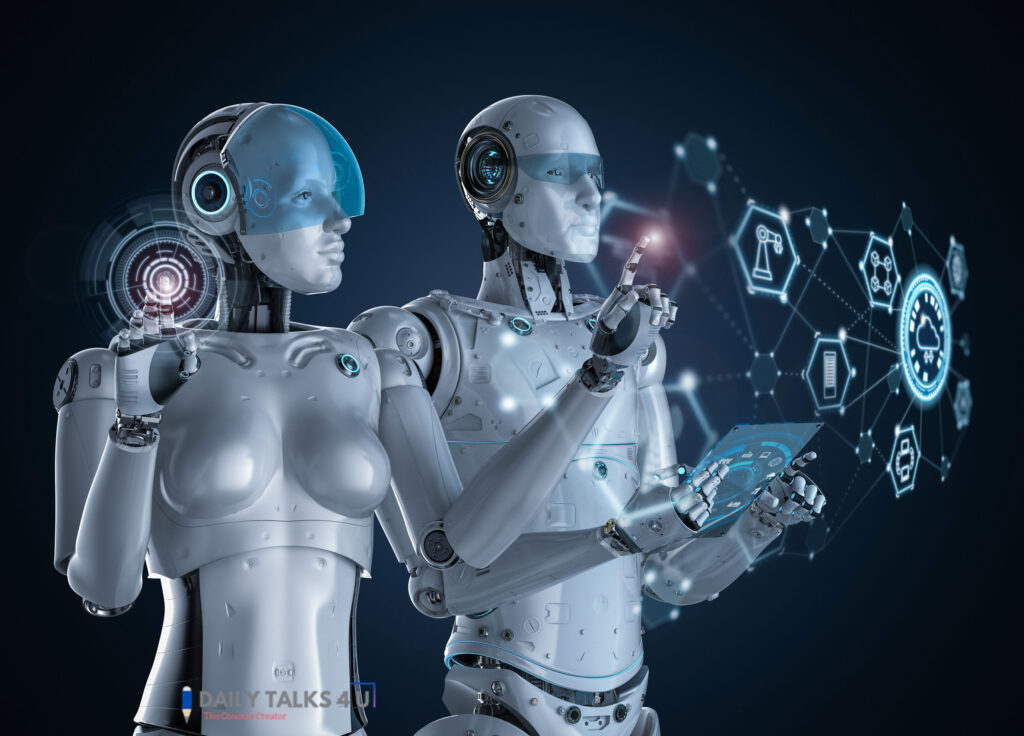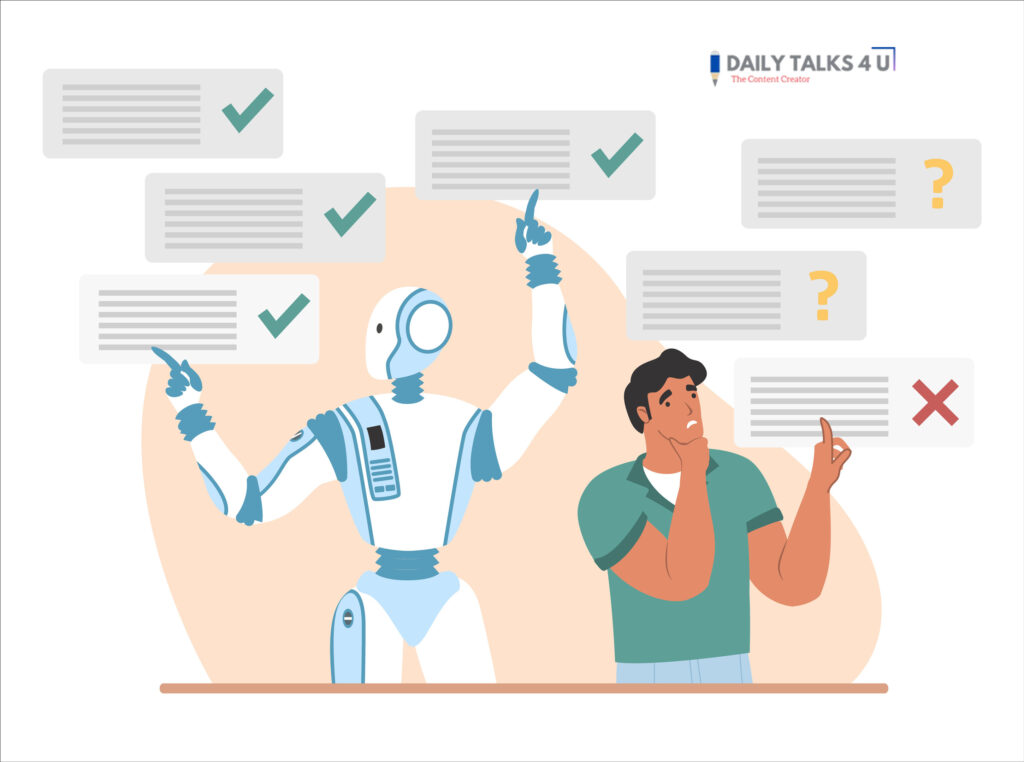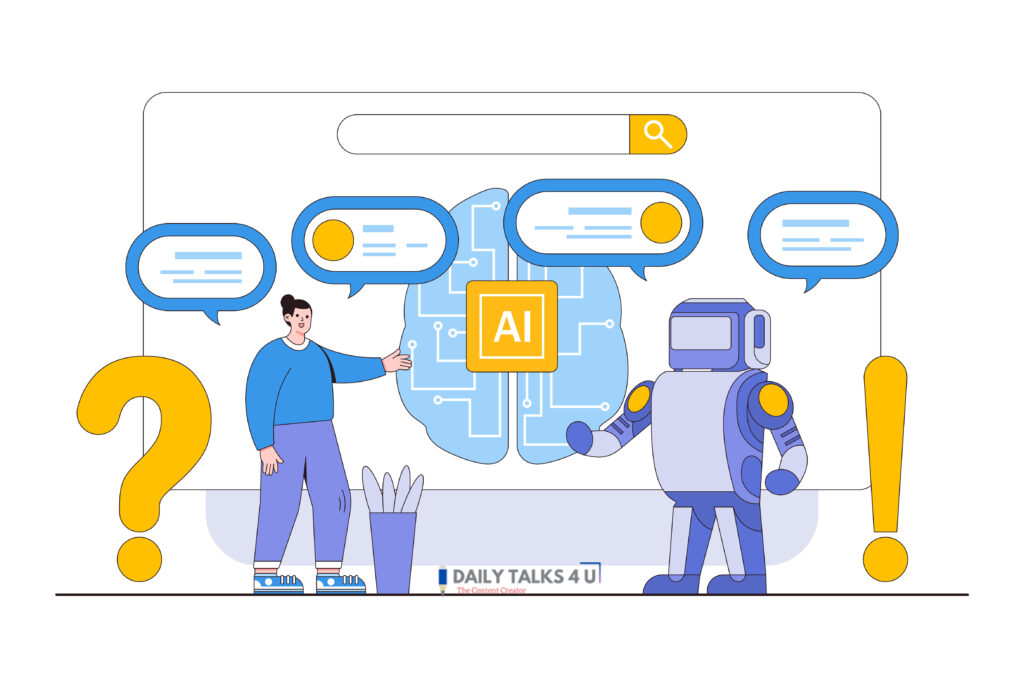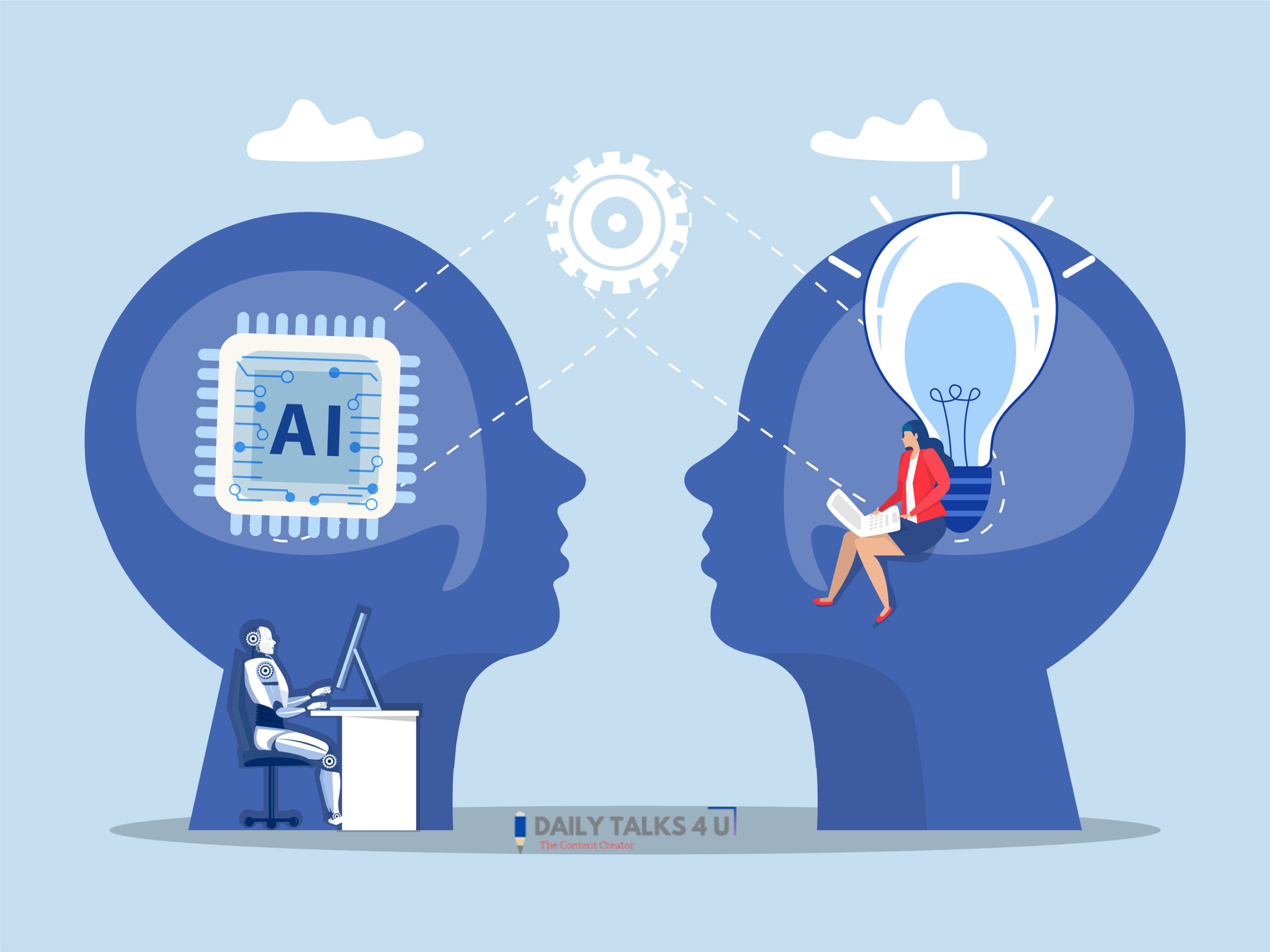Artificial intelligence has undoubtedly transformed our lives. Some, however, might question whether it’s for the better.
According to a new Forbes survey, a significant portion of Americans still have more faith in people than in artificial intelligence. According to the survey, people would be better at creating laws, picking gifts, and even giving medication, to mention a few tasks.
✅ Advantages of AI
- Efficiency and Automation
- Automates repetitive tasks (e.g., manufacturing, data entry).
- Increases productivity and reduces human error.
- 24/7 Availability
- Artificial intelligence systems don’t need breaks, sleep, or vacations.
- Data Analysis & Decision-Making
- Provides insights and predictions (e.g., in finance, healthcare).
- Healthcare Innovation
- AI helps in disease diagnosis (like cancer detection).
- Personalized treatment plans, robotic surgeries.
- Enhanced Customer Experience
- Cost Savings
- Reduces labor costs and increases operational efficiency over time.
- Scalability
- Easily scaled to manage large operations or global services.
❌ Disadvantages of AI
- Job Displacement
- Replaces roles in industries like manufacturing, retail, and transport.
- Bias and Discrimination
- AI can pick up on or exaggerate human bias in training data.
- Lack of Human Judgment
- Struggles with complex ethical or emotional decisions.
- High Costs
- Security Risks
- AI can be exploited for cyberattacks, fraud, or surveillance.
- Loss of Privacy
- AI-driven data collection can lead to intrusive surveillance.
- Overdependence
- Relying too much on AI can reduce critical thinking and human skills.
⚠️ Fears of AI
- Loss of Jobs on a Large Scale
- Widespread unemployment due to automation.
- Loss of Control
- Fear that superintelligent AI could surpass human control (the “AI takeover” scenario).
- Ethical Concerns
- Who is accountable for AI decisions? Can AI make moral choices?
- AI in Warfare
- Use of autonomous weapons and AI in military operations raises concerns.
- Deepfakes and Misinformation
- AI can generate realistic fake content, causing public mistrust.
- Surveillance and Social Control
- Governments or corporations using AI for mass surveillance and behavioral control.
Existential Risk of AI
Fear among some experts that superintelligent AI could pose a long-term threat to humanity if misaligned with human values.

| Category | Point | Example |
|---|---|---|
| ✅ Advantages | Automation | AI robots on assembly lines; self-driving delivery trucks |
| 24/7 Availability | AI chatbots handling customer queries all day/night | |
| Fast Data Analysis | AI predicting stock trends or spotting fraud in banking | |
| Healthcare Innovation | AI diagnosing diseases via medical imaging (e.g., skin cancer detection) | |
| Improved Customer Experience | Virtual assistants like Siri, Alexa, or chatbots in apps | |
| Cost Savings | AI replacing multiple human jobs in a company to reduce expenses | |
| Scalability | AI used by global companies like Amazon or Google to manage billions of queries | |
| ❌ Disadvantages | Job Loss | Self-checkout machines replacing cashiers; truck drivers replaced by AI |
| Bias in Decisions | AI hiring tools favoring certain groups due to biased data | |
| Lack of Empathy | AI can’t comfort a patient or make moral calls like a human doctor | |
| High Costs | AI model training (e.g., ChatGPT, GPT-4) costs millions | |
| Security Vulnerabilities | AI-powered hacking tools or identity theft software | |
| Privacy Invasion | Facial recognition tracking people without consent | |
| Overreliance | Students using AI for everything, leading to a drop in problem-solving skills | |
| ⚠️ Fears | Mass Unemployment | AI replacing entire sectors like telemarketing, driving, legal reviewing |
| Loss of Human Control | Superintelligent AI acting outside human intentions (sci-fi fear) | |
| Ethical Gray Areas | AI deciding who gets medical treatment in limited resource situations | |
| Autonomous Weapons | AI drones used in war zones making life-or-death decisions | |
| Deepfakes and Fake News | AI-generated videos of public figures saying false things | |
| Total Surveillance | AI used by authoritarian regimes to monitor citizens constantly | |
| Existential Risk | Theoretical future where AI becomes smarter than humans and acts against us |
Advantages of Artificial Intelligence
Artificial Intelligence (AI) brings a range of benefits across various sectors. One of its major advantages is automation. AI can efficiently handle repetitive and time-consuming tasks, such as data entry, manufacturing processes, and logistics management, reducing the need for constant human involvement.
Another strength of AI is its ability to work continuously without fatigue. Unlike humans, AI systems do not need rest or breaks, making them ideal for 24/7 operations, such as in customer support through chatbots and virtual assistants. In addition, AI excels at processing and analyzing massive amounts of data at high speeds, uncovering patterns and insights that would be difficult or time-consuming for humans to find. This capability is especially valuable in sectors like finance, marketing, and scientific research.
AI has also made significant contributions to healthcare. It can assist in diagnosing diseases by analyzing medical images and patient data, sometimes with greater accuracy than human professionals. AI-driven technologies also support personalized treatment plans and even perform robotic surgeries with high precision. Moreover, AI enhances user experience in everyday applications, from personal assistants like Siri and Alexa to recommendation systems on platforms like Netflix and Amazon.
Beyond these areas, AI can contribute to long-term cost savings. While the initial investment might be high, over time, AI can reduce labor costs and operational inefficiencies. Its ability to scale easily also makes it suitable for businesses and services operating on a global level.

❌ Disadvantages of Artificial Intelligence
Despite its benefits, AI comes with several drawbacks. As machines and algorithms take over tasks once performed by humans, many fear that widespread unemployment could follow, especially in sectors like transportation, customer service, and manufacturing.
Another major disadvantage is the risk of bias in AI decision-making.. This has been seen in AI tools used in hiring, policing, and lending, where biased outcomes can lead to discrimination against certain groups.
AI also lacks human judgment and empathy. While it can process data and offer logical solutions, it struggles with emotional intelligence and moral reasoning. This limitation makes it unsuitable for roles that require human understanding, such as therapy or conflict resolution.
Furthermore, the development and maintenance of advanced AI systems can be costly. High-performance computing resources, skilled personnel, and large datasets are required to train and sustain AI technologies. There are also security concerns, as AI can be exploited for malicious purposes, including cyberattacks, identity theft, and even surveillance.
AI’s ability to collect and analyze personal information can lead to significant privacy violations. In some cases, people may not even be aware of how much of their data is being tracked or used. Lastly, overreliance on AI could result in people losing critical thinking and problem-solving skills, especially in educational and professional environments where human input is still essential.

Artificial Intelligence (AI) – FAQs
1. What is Artificial Intelligence (AI)?
AI refers to the development of computer systems that can perform tasks that normally require human intelligence, such as problem-solving, decision-making, language understanding, and learning from data.
2. What are the main advantages of AI?
AI can automate repetitive tasks, work 24/7 without fatigue, analyze large amounts of data quickly, and improve services in sectors like healthcare, finance, and customer support. It also helps reduce human error and increase productivity.
3. How does AI benefit the healthcare industry?
AI helps diagnose diseases through medical imaging, assists in robotic surgeries, provides personalized treatment plans, and supports early detection of health issues, often faster and more accurately than traditional methods.
4. Can AI replace human jobs?
Yes, AI can replace jobs that involve routine, repetitive tasks, such as data entry, customer service, and even driving. However, it also creates new jobs in tech development, AI ethics, and data science.
5. What are some disadvantages of AI?
Key disadvantages include job loss, high development costs, biased decision-making, lack of emotional intelligence, potential for misuse (e.g., in hacking or surveillance), and reduced human creativity and critical thinking.
6. Is AI always accurate and unbiased?
No. AI systems can reflect the biases in the data they are trained on. This means they can make unfair or incorrect decisions, especially in sensitive areas like hiring, law enforcement, or lending.
7. How is AI used in everyday life?
Examples include voice assistants like Siri and Alexa, recommendation engines on Netflix or YouTube, smart home devices, facial recognition on phones, and AI-powered chatbots on websites.
8. Why are some people afraid of AI?
Common fears include losing control over AI systems, mass job loss, ethical issues in decision-making, AI being used for war or surveillance, deepfakes spreading misinformation, and long-term risks if AI becomes superintelligent.
9. Can AI become smarter than humans?
While AI is currently task-specific and limited to what it’s trained on, some researchers believe that a superintelligent AI (Artificial General Intelligence) could eventually surpass human intelligence—raising concerns about control and safety.
10. How can we reduce the risks of AI?
Risks can be managed through responsible development, strict regulations, ethical guidelines, transparency in AI systems, and ongoing human oversight to ensure AI is aligned with human values.









